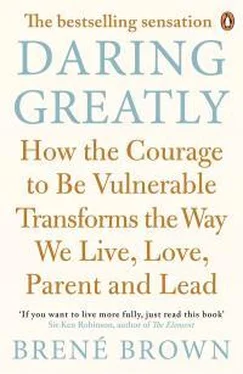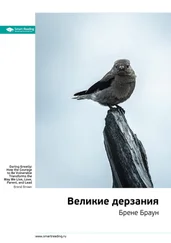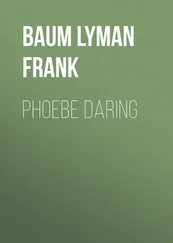It’s easy to put up a straw man in this argument and say, “So we’re just supposed to ignore parents who are abusing their children?” Fact: That someone is making different choices from us doesn’t in itself constitute abuse. If there’s real abuse happening, by all means, call the police. If not, we shouldn’t call it abuse. As a social worker who spent a year interning at Child Protective Services, I have little tolerance for debates that casually use the terms abuse or neglect to scare or belittle parents who are simply doing things that we judge as wrong, different, or bad.
In fact, I’ve sworn off the good-bad parenting dichotomy simply because on any given day you could file me under both good parent and bad parent, depending on your perspective and how things are going for me. I just don’t see what value this judgmental frame adds to our lives or to the larger parenting conversation. In fact, it’s a shame storm waiting to happen. To me the question of parenting values is about engagement. Are we paying attention? Thinking through our choices? Open to learning and being wrong? Curious and willing to ask questions?
What I’ve learned from my work is that there are a million ways out in the world to be a wonderful, engaged parent, and some of them are going to bump up against what I personally think about parenting. For example, Steve and I are very strict about what we let the kids watch on TV—especially when it comes to violence. We think about it, talk about it, and make the best decisions we can. On the other hand, we’ve got friends who let their children watch movies and shows that we don’t allow Ellen or Charlie watch. But you know what? They also think about it, talk about it, and make the best decisions they can. They just came to a different conclusion than we did, and I respect that.
We recently found ourselves on the other side of this issue when some good friends expressed surprise that we let Ellen read The Hunger Games . Again, those parents were also engaged in the question, and the conversation we had showed mutual respect and empathy. Minding the gap can be particularly challenging when honoring difference is one of our aspirational values. I think the key is remembering that when other parents make different choices than we’re making, it’s not necessarily criticism. Daring greatly means finding our own path and respecting what that search looks like for other folks.
MINDING THE GAP AND BELONGING
Worthiness is about love and belonging, and one of the best ways to show our children that our love for them is unconditional is to make sure they know they belong in our families. I know that sounds strange, but it’s a very powerful and at times heart-wrenching issue for children. On page 145, I defined belonging as the innate human desire to be part of something larger than us. One of the biggest surprises in this research was learning that fitting in and belonging are not the same thing. In fact, fitting in is one of the greatest barriers to belonging. Fitting in is about assessing a situation and becoming who you need to be in order to be accepted. Belonging, on the other hand, doesn’t require us to change who we are; it requires us to be who we are.
When I asked a large group of eighth graders to break into small teams and come up with the differences between fitting in and belonging, their answers floored me:
Belonging is being somewhere where you want to be, and they want you. Fitting in is being somewhere where you really want to be, but they don’t care one way or the other.
Belonging is being accepted for you. Fitting in is being accepted for being like everyone else.
I get to be me if I belong. I have to be like you to fit in.
They nailed the definitions. It doesn’t matter where in the country I ask this question, or what type of school I’m visiting, middle and high school students understand how this works.
They also talk openly about the heartache of not feeling a sense of belonging at home. That first time I asked the eighth graders to come up with the definitions, one student wrote, “Not belonging at school is really hard. But it’s nothing compared to what it feels like when you don’t belong at home.” When I asked the students what that meant, they used these examples:
Not living up to your parents’ expectations
Not being as cool or popular as your parents want you to be
Not being as smart as your parents
Not being good at the same things your parents were good at
Your parents being embarrassed because you don’t have enough friends or you’re not an athlete or a cheerleader
Your parents not liking who you are and what you like to do
When your parents don’t pay attention to your life
If we want to cultivate worthiness in our children, we need to make sure they know that they belong and that their belonging is unconditional. What makes that such a challenge is that most of us struggle to feel a sense of belonging—to know that we’re a part of something, not despite our vulnerabilities, but because of them. We can’t give our children what we don’t have, which means we have to work to cultivate a sense of belonging alongside our children. Here’s an example of how we can grow together and how our children are capable of great empathy. (There’s nothing that inspires that deep sense of belonging like shared empathy!)
When Ellen was in fourth grade, she came home from school one day and burst into tears as soon as we shut the front door, then ran up to her room. I immediately followed, then knelt down in front of her and asked her what was wrong. Through her sniffles she said, “I’m so tired of being the other ! I’m sick of it!”
I didn’t understand, so I asked her to explain what she meant by “the other.”
“We play soccer every day at recess. Two popular kids are the captains and they pick the teams. The first captain says, ‘I’ll take Suzie, John, Pete, Robin, and Jake.’ The second captain says, ‘I’ll take Andrew, Steve, Katie, and Sue, and we can split the others. ’ Every single day I’m one of the others . I never get to be named.”
My heart sank. She was sitting on the edge of her bed with her head in her hands. I was so concerned when I followed her into her room that I hadn’t even flipped on the light. I couldn’t stand the vulnerability of seeing her sitting in the dark crying, so I walked over to the light switch. It was divine intervention—the act of starting to turn on the lights to alleviate my discomfort made me think of my favorite quote about darkness and compassion from Pema Chödrön, who writes: “Compassion is not a relationship between the healer and the wounded. It’s a relationship between equals. Only when we know our own darkness well can we be present with the darkness of others. Compassion becomes real when we recognize our shared humanity.”
I left the light switch alone and walked back to sit with Ellen in the literal and emotional dark. I put my arm around her shoulder and said, “I know what it’s like to be the other.”
She wiped her nose on the back of her hand and said, “No, you don’t. You’re really popular.”
I explained that I really do know what it feels like. I told her, “When I feel like the other, I get angry and hurt, and I mostly feel small and lonely. I don’t need to be popular, but I want people to recognize me and treat me like I matter. Like I belong.”
She couldn’t believe it. “You do know! That’s exactly how I feel!”
We snuggled on her bed, and she told me about her recess experiences, and I told her about some of my experiences in school when otherness is both powerful and painful.
Читать дальше






![Брене Браун - Вопреки. Как оставаться собой, когда всё против тебя [litres]](/books/436389/brene-braun-vopreki-kak-ostavatsya-soboj-kogda-v-thumb.webp)





